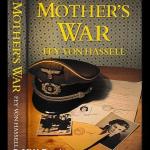Colin Gunton has cited Augustine’s doctrine of the “inner word” as a sign of his preference for abstract over the material/concrete. John Cavadini (Theological Studies 1997) responds: “Augustine’s distinctions, between the presignified and the signified, are evidence unobserved and unaccounted for by Gunton, who sees a distinction only between the ‘abstract’ and the ‘concrete’ or ‘material,’ distinctions which Augustine’s categories seem to override (the inner word is not ‘abstract’ but knowledge ‘intended’ in some very concrete act of the will,... Read more




















